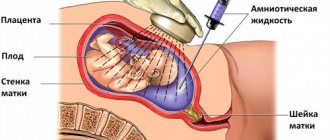Strange thieves, people with a magpie's instinct to steal shiny things... Many people know about kleptomania thanks to the scandals surrounding media stars caught stealing in a supermarket. Nowadays, any person caught stealing can claim that he is a kleptomaniac, hoping to deceive a psychiatric examination. But medical statistics say that kleptomania is a rare disease. Proving the presence of this mental disorder is extremely difficult. There is still debate among psychiatrists whether kleptomania should be recognized as a separate disease, or whether it is just one of the symptoms of some mental disorders.
Who is a kleptomaniac - a mentally ill person or a criminal with pathology? Or maybe he is dependent, like a drug addict? This article is dedicated to answering these questions.
Translated from ancient Greek, klepto means “stealing,” mania means “passion, madness.” Thus, kleptomania is an obsessive passion for theft. The term “kleptomania” appeared in 1816, when French psychiatrists began to develop the topic of “monomania.” In those days, it was believed that mental illness could manifest itself in any one morbid tendency (for example, to theft), without the admixture of other types of insanity.
Later the doctrine of monomania was refuted. Modern experts believe that a pathological passion for theft usually accompanies psychopathy or psychopathic states of an organic nature. Also, people suffering from kleptomania are diagnosed with depression, anxiety, phobic disorders and addictions - food, gaming, alcohol or drugs. A pathological attraction to theft may begin to manifest itself against the background of hidden mental disorders after severe or prolonged stress, or after events that a person perceives as life disasters.
According to the American classification of mental illnesses DSM-IV-TR, manifestations of kleptomania are classified as an impulse control disorder. In the international classification of diseases ICD-10, kleptomania is placed in the category F63 - “Disorders of habits and desires”, together with pathological passion for gambling, pyromania, trichotillomania (an obsessive desire to pull out one’s hair).
Thus, a kleptomaniac is a person who cannot control his drives and impulses. What then are these drives about, and where do they come from? Is attraction itself pathological? Or is it a base instinct that a healthy psyche is quite capable of controlling?
Ethology, the science of animal behavior, will help answer these questions.
Almost all types of social animals have innate programs for “appropriating other people's goods,” ranging from robbery to begging. Thus, we can talk about the existence of an instinct for theft. Ethologists also call this thieving instinct “kleptomania,” without putting any pathological meaning into this term. Secret thefts flourish in hierarchically organized flocks, where a low-status individual steals food or mating decorations from higher-status relatives.
When an animal finds itself at the bottom of the hierarchical pyramid, it is forced to steal secretly in order to survive. But well-fed and prosperous dominants of the pack can also steal. This is especially developed in birds of the corvid family - magpies and crows. Their thieving passion sometimes does not even count as a threat to life. Therefore, from time immemorial the expression “thief magpie” has been a common noun in many languages of the world.
For animals that are at the top level of the hierarchy in their pack, theft turns into a kind of game or a source of vivid sensations. This is the implementation of an orienting reflex, which helps the psyche assimilate everything new. And at the same time, this reflex can greatly inhibit current activity, recognizing the meaning of new stimuli.
Thus, the same two types of theft can be observed in animals as in humans: the appropriation of other people's resources for survival (result-oriented) and theft for thrills (process-oriented). On this basis, a distinction is made between theft and kleptomania. Criminals steal for selfish purposes, while those suffering from kleptomania steal for the thrill of the process itself.
The difficulties in diagnosing childhood kleptomania lie in the fact that children's theft may be in the nature of a game that implements an instinctive program, and may have no relation either to theft in the legal sense, or to kleptomania in the pathopsychological sense. Stealing among teenagers is often a protest against pressure from elders or an attempt to gain higher status among peers.
The average age of a kleptomaniac is 36 years; women are more likely to suffer from kleptomania, especially during periods of hormonal imbalance (PMS, pregnancy or menopause). The first attacks appear in childhood or adolescence.
Prerequisites for kleptomania
This mental disorder occurs in children of all ages, from toddlers to teenagers. But if thieves under five years old simply do not divide their actions into bad and good, and do not understand the difference between their own and someone else’s due to their immature personality, then this is not the case with older children. At the age of 7–10, especially in families where the difficulty of making money is never discussed and everything is bought at the child’s request, children do not realize the value of money and things.
Eleven-year-old schoolchildren and older already have strong concepts of moral principles and rules of society, and they are driven by uncontrollable mental dependence. It is characterized by:
- impulsiveness - the theft is not planned, but is committed spontaneously, at the moment the desire for such an action appears;
- lack of selection of the object of “attempt” - it can be anything and is not selected in advance;
- anticipation of receiving pleasure from the process of theft;
- a strong need to pacify the craving for theft, which cannot be interrupted by anything;
- obtaining relief after the deed.
A child usually commits such a petty crime in a gloomy mood. He does this to get rid of a depressed state of mind and experience euphoria.
Age characteristics
At preschool age, children have not yet developed the emotional-volitional sphere, violations of which lead to kleptomania. Therefore, during this period it is impossible to predict the development of such a disease. All kids sometimes try to take something that is not theirs, because they do not yet understand that such actions are wrong.
At this age, it is important to calmly and patiently explain to the baby that you cannot take other people’s things without permission. If such a conversation does not take place on time, then in the future the child may develop the problem of kleptomania.
At primary school age, kleptomania is most often detected in children. This is due to the fact that children 7-11 years old do not yet know how to convincingly hide their emotions, so what they have done quickly becomes known to adults and their surrounding peers. This is the ideal age to begin psychotherapeutic work aimed at correcting kleptomania. In addition to the help of a psychologist, the child needs constant supervision from nearby adults, even if he has not been caught stealing for a long time.
Causes
Kleptomania is associated with psychological problems, the child’s inability to control their desires and ignorance of normal ways to get satisfaction.
The desire to become the owner of someone else's property
Little thieves may be aware that taking someone else's property for themselves is a bad act. But they are not able to resist the impulse. Such children justify their actions with the following: the victims have a lot of similar things and they will not lose them.
The theft of an unusual chocolate bar in a beautiful package occurs due to the desire to try something new, unknown. The child caught in the act swears that he would really like to buy such a delicacy, but there is no money for it. At the same time, he has a fairly decent amount in his pocket, given by his father or mother for small expenses.
Parental neglect
Lack of emotional contact with parents, their love and care is the most common reason for the attraction to theft. By stealing, such offspring compensate for the indifference of loved ones towards them.
Most often this happens in wealthy families, in which adults live only in their own interests, which is to strengthen their financial well-being. They have absolutely no time or desire for such “little things” as normal everyday communication with their own children. Therefore, they “buy off” the child with money, buying him everything he wants. The child is not at all happy with this, and he begins to steal, trying to attract the attention of his parents to himself in at least such a radical way.
And in dysfunctional families, a kleptomaniac appears due to the child’s desire to neutralize conflicts. By stealing, he tries to distract mom and dad from everyday quarrels and scandals among themselves, causing fire on himself.
Self-affirmation
Another common reason is the desire to gain high status among peers and become a significant member of the team. The child believes that by stealing he will not only raise his self-esteem, but also become an authority and will be respected. Usually this is done by the so-called “white sheep”, who for some reason are not accepted by their peers, indecisive and shy individuals.
A kleptomaniac teenager usually takes things from his own home without asking, food products that he distributes to friends, as well as money spent on guys he knows. The goal of such actions is one: to become a significant figure, to gain recognition.
Demonstration of "adulthood"
When a schoolchild commits a theft, they are trying to show on a subconscious level: I am already an adult. Among peers (not all of them, but quite a lot of them), any successful crime is a sign of “coolness,” special skills, dexterity, and cunning. It is impossible to join some companies without doing something like this.
Miseducation
Lack of proper upbringing leads to the fact that the child’s personality remains immature. He has no moral principles and ideas about the norms of behavior in society, moral qualities. Without a strict attitude that theft, as a criminal act, is an unacceptable crime in society that provides for punishment, he steals for pleasure. For such an individual there is nothing unnatural in this: if I want, I can get it, especially since he cannot resist his desire.
Character traits
Personality characteristics can also become an impetus for the development of kleptomania. It could be:
- weak will, easy subordination to another person;
- irresponsibility;
- ignorance of the concepts of “one’s own” and “someone else’s” is, rather, a lack of education;
- inability to self-control;
- lack of empathy;
- vindictiveness, desire to annoy the offender;
- imitation of adults (if it is customary to steal in close circles).
These negative properties can become an impetus for illegal actions if there is little control over the child’s life and his actions.
In addition, if the theft committed did not lead to the reaction of the parents necessary in this case, then impunity will lead to relapse in adolescence.
State of health, including mental health
Children with:
- diseases of the brain, central nervous system;
- oligophrenia and other mental disorders;
- endocrinological problems.
For such patients, there are no bars that limit behavior and can stop illegal actions. They simply do not understand that they are committing an unworthy act.
A child who has experienced psychological trauma, has an anxious personality type, or is choleric can also become a thief.
Is kleptomania inherited through genes? A number of experts believe that this is so, taking into account the presence of such a disorder in adopted children brought up in very prosperous families. But many scientists disagree with this opinion, pointing out that a child can only inherit aggressiveness from a thief - a physiological parent.
Description
Kleptomania is not a bad habit or a challenge to society, not a strange amusement, but a mental illness, the name of which comes from the ancient Greek words κλ? πτειν – “to steal”, “theft” and μαν? α – “pathological attraction”. The disease really exists, it is included in ICD-10 under code F63.2. This type of disorder is often called theft mania. French doctors were the first to realize that this was a disease, and this happened in 1816. And until the last century, their version was the main one: doctors all over the world recognized kleptomania as a painful urge to steal something as a manifestation of hysteria, dementia, brain damage or menstrual irregularities in women (and such a relationship was seriously considered by the greatest scientific minds of the world and even found her reasonable!).
Modern doctors look at kleptomania as a manic state that occurs with impaired self-control. This means that a kleptomaniac cannot resist the obsessive desire to steal. There is also a scientific hypothesis that completely denies the presence of such a disease. Those who deny kleptomania in principle argue that the disease was “invented” by humanity to justify the most common, ordinary theft (patients can avoid prison).
Official medicine today has a different opinion. Kleptomania is classified as an impulse disorder. It is often accompanied by other mental illnesses, such as anxiety disorders, eating disorders, and alcoholism. Kleptomaniacs are impulsive, they do not pursue any personal or other benefit with their actions (this is supported by the fact that most often they steal things that they do not even know where to use, which they do not need). Theft is committed in order to simply enjoy the adrenaline rush (after all, the process of theft itself is closely related to a strong release of stress hormones).
There is no way to say how many kleptomaniacs live on the planet. Diagnosis of the disease is very difficult; patients do not go to doctors for fear of losing their social status and reputation. In Russia, psychiatrists see patients with this diagnosis in isolated cases, in the USA - more often due to a different mentality. And American psychiatrists from the National Association claim that up to 7% of the country's residents are latent or open kleptomaniacs. Their Canadian colleagues supplemented the data with a picture of the average portrait of a classic kleptomaniac: this is a woman aged 30 to 40 years. It is believed that kleptomania is not hereditary, but this has not yet been proven.
The French monarch Henry of Navarre will forever remain in history as the most royal kleptomaniac. The richest man of his time could not resist the temptation to steal some trinket while visiting. Realizing that he was not acting like a king, then Henry every time always sent a messenger with the trinket back to the owners. Heinrich tried to ridicule his subordinates, explaining that he could so easily fool them.
American writer Neal Cassidy (one of the founders of the beat generation) suffered from kleptomania all his life, but it was “narrow-profile”: the writer only stole cars. From the age of 14 to just over 20, he was able to steal about 500 cars. Kleptomania was not the writer’s only problem; he showed signs of various mental disorders, and he tried to alleviate his obsessive thoughts with drugs, psychoactive substances and an unbridled lifestyle.
Hollywood actress Lindsay Lohan is a kleptomaniac; she was even sentenced for shoplifting. But even after completing the correctional hours required by the sentence, Lindsey was repeatedly caught in petty and grand theft. The same diagnosis was established along with oniomania (shopaholism), drug addiction and depression for singer Britney Spears. She only stole lighters and wigs from sex stores.
Another Hollywood diva, Winona Ryder, was officially recognized by doctors as a kleptomaniac about 10 years ago. She steals items of clothing from stores, for which she has already been punished by the police. But everything is in vain. Winona also appeared in crime chronicles later.
How to recognize kleptomania in children
Such a “bad habit” will immediately become noticeable to parents who monitor their child’s behavior and notice any changes in him. It is unlikely that you will be able to disguise your passion for theft to a close eye.
Kleptomania in a child is indicated by:
- having pocket money that was not given to him;
- missing money from family members’ wallets;
- the appearance of other people's things in the house and the disappearance of valuable items from it;
- mood swings;
- excessive irritability, aggression, conflict;
- isolation;
- insomnia;
- oppression;
- changes in eating behavior - gluttony or refusal to eat;
- avoidance of communication with peers.
All this is a signal of addiction, which requires immediate adult intervention. This is where thoughtful educational measures come into play, which need to be agreed upon with an experienced family or child psychologist. A visit to such a specialist with a young kleptomaniac would also be useful. There are techniques that can help get rid of the problem.
What should parents do?
Working with a psychologist is an excellent solution for chronic theft. But moms and dads can’t sit idly by even at the first case of theft.
You cannot rashly label a child as a thief, but you cannot ignore the crime either. He should be condemned and the reason for it must be found out.
The wrong decision for the spouses would be to complain to each other, shifting the blame: “It’s your fault, your upbringing, I knew/knew that this would lead to this.”
It should be understood that “debriefing” can be very painful for the offspring, but, most likely, this is necessary for him to better understand the gravity of what he has done. The child must learn: even if he committed theft because he really wanted this thing, then no such “rosy” dream can compare with how severe the consequences will be.
Everyone needs to return the stolen property to the owner together, with obligatory apologies, repentance and assurances that this will not happen again. This will also be remembered.
In order not to injure your child, you need to make sure that it was he who committed the theft. Unfounded accusations can cause him severe psychological trauma and give rise to an inferiority complex.
If the “crime” involves sweets, then as a punishment it is advisable to prohibit their consumption for some time. The money stolen from parents is charged to the thief as a debt: he either must work it off, or save it, using donations from other relatives.
Treatment
Therapy for kleptomania consists of eliminating the causes that contribute to the appearance of this mental disorder. The psychologist, after talking with the child, will establish the motives of the pathology, give advice to parents on raising their child and the measures they should take so that the offspring can get rid of the desire to steal.
In advanced cases and severe situations, psychotherapy may be needed. One of the most effective techniques in these cases is hypnotherapy.
Pharmaceutical drugs are not used to treat kleptomania. But they may be needed if the child is diagnosed with a serious mental or organic illness.
Prevention
Is there any way to avoid developing kleptomania in your child? Yes, if you follow these recommendations:
- educate by example - never take anything that belongs to others;
- read or compose, and then tell the child such fairy tales or stories in which theft is condemned and a vivid image is given that it is not good;
- explain to the offspring that everyone in the family has their own things and cannot take them without asking;
- give the child the idea that the money used to buy something is earned through hard work;
- teach how to save donated money in order to later buy the desired thing with it;
- devote a lot of time to your child and his upbringing, exercise reasonable control over him;
- establish frank, close, warm relationships in the family;
- react properly at the first episode of theft.
Kleptomania in young children and schoolchildren is a very serious problem, and it should not be left to chance. Openness in the family, vigilance, and proper education can prevent such pathology. And if this happened, then the correct reaction will make the theft an isolated episode.
Definition of the concept
What is kleptomania in children? This is a mental disorder that is characterized by an irresistible desire to take other people's things. Stolen items do not represent any real value, but only bring a sense of moral satisfaction to the kleptomaniac.







